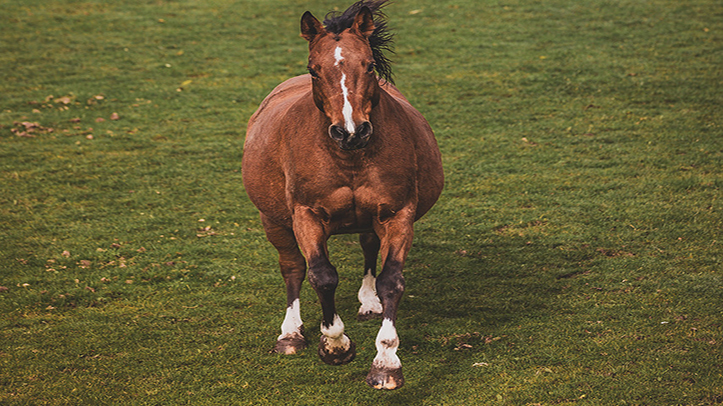New research, published by the University of Melbourne in partnership with the SPILLERS brand, is enhancing knowledge about how best to manage horses and ponies with pituitary pars intermedia dysfunction (PPID), ultimately to help to reduce the risk of laminitis.
The study shows that pergolide mesylate, the most common drug used to treat PPID, may reduce the amount of insulin produced in response to eating, in horses and ponies that have PPID together with ID. It also suggests that a low sugar and starch diet remains important, to keep insulin levels as low as possible.
The paper has been selected as one of the most clinically relevant pieces of research published in the Equine Veterinary Journal’s early view section this month.
PPID, also known as Cushing’s syndrome, is a common condition in older horses and ponies. Some PPID animals may be at increased risk of suffering from laminitis, especially if they also have insulin dysregulation (ID). In fact, laminitis associated with a high concentration of insulin the blood (hyperinsulinemia), is now thought to be the most common form of laminitis in the UK.
Pergolide has been shown to be effective in managing some of the main associated clinical signs of PPID. As laminitis is such a painful and potentially devasting condition, the researchers were keen to find out whether pergolide might help to reduce ID.
As part of the study, 16 senior horses, eight with PPID and ID and eight with ID only, took part in a standard meal test. This involved measuring the concentration of insulin in their blood before and after eating a high starch meal.
By the end of the study, all horses had completed the standard meal test twice, once after four weeks of pergolide treatment and once without pergolide treatment.
The results showed:
- Pergolide treatment reduced blood insulin levels after eating in horses with PPID and ID to the level seen in those with just ID;
- Pergolide treatment had no effect on blood insulin levels in horses with ID only; and
- Even when treated with pergolide, the horses produced higher levels of insulin in response to eating a starch and sugar rich meal than seen in healthy horses.
“The results suggest that pergolide may reduce the amount of insulin produced in response to eating in horses and ponies that have PPID together with ID but not back to normal,” said Sarah Nelson product manager at Mars Horsecare.
“However, it is also important to note that sugar and starch can still raise insulin to abnormally high levels even when the horses and ponies are on pergolide, meaning that a low sugar and starch diet remains crucial for horses with PPID and/or ID. Finally, given that horses with ID only did not respond to pergolide we must ensure that PPID and ID are tested for separately – managing one will not necessarily manage the other.”
The research forms part of ongoing work by the SPILLERS brand and collaborators to help senior horses live happier, healthier lives for longer.


